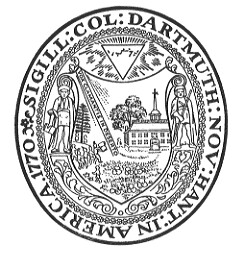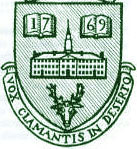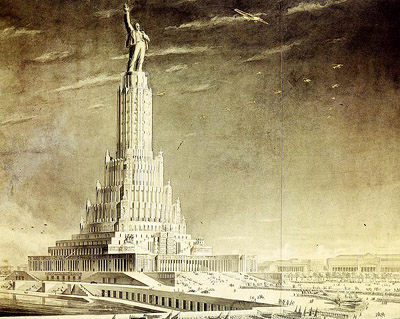As we gather around the roaring yule-log, sipping our rum laced with egg-nog, we too often fail reflect on the true origins of our yearly holiday. And I certainly do not mean the Christy ones-- I'm talking about the kind of origin that involves drunk rioters and talking farm animals. In times like these, I turn to my 1898 edition of Curiosities of Popular Customs, and of Rites, Ceremonies, Observances, and Miscellaneous Antiquities by William S. Walsh for the proper perspective. I bought my copy from the Tabor Academy library for $1, the reference librarian having concluded that it was too racist and outdated for a modern high school. It is an invaluable source of naïvely Anglo-centric information about holidays no one celebrates anymore, or celebrates widely now but which were new then, or stories about where pieces of saint's bodies ended up. Or of the horrible blood-rites common in heathen lands.
As my X-Mas gift to you, people who read this, I will simply excerpt a large piece of the fascinating entry on Christmas. (It may be read starting on page 226). No where else can you see the history of Christmas explained using words like 'pagan,' 'Govr' and 'Popish'? Or outlandishly racist sentiment from the 1890's. Or phrases such as "...citizens saluted his charred and mangled corpse, when it was last borne to the grave." Enjoy!
______________________
Christmas. The reputed anniversary of the birth of Jesus Christ, December 25, and as such one of the greatest festivals of the Protestant, Catholic, and Greek Churches. It is essentially a day of thanksgiving and rejoicing,—a day of good cheer. Though Christians celebrate it as a Christian festival, though to them it is the anniversary of the most solemn event in all history, the meeting of heaven and earth in the birth of the God-Man, the festivities that mark the epoch are part of the universal history of the race. In pagan Rome and Greece, in the days of the Teutonic barbarians, in the remote times of ancient Egyptian civilization, in the infancy of the race East and West and North and South, the period of the winter solstice was ever a period of rejoicing and festivity. Even the Puritanism of the Anglo-Saxon has not been equal to the task of defending Yule-tide from a triumphant inroad of pagan rites and customs, so that the evangelical churchman who is shocked to see flowers decorating the sanctuaries at Easter would be sorry to miss the scarlet berries that hang there at Christmas, so that even austerest lovers of the plain-song tolerate and even weleome " quips and cranks and wreathed smiles" in their Christmas carols, so that joviality and merrymaking are the order of the day at Christmas banquets,—a joviality sanctified and made glorious by good will to all men. Yet the holly and the mistletoe are a survival of ancient Druidical worship, the Christmas carol is a new birth, purified and exalted, of the hymns of the Saturnalia, the Christmas banquet itself is a reminiscence of the feasts given in honor of ancient gods and goddesses, when, as Cato said of the analogous feasts in imperial Rome, commemorating the birth of Cybele, the prospect that drew one thither was "not so much the pleasure of eating and of drinking as that of finding one's self among his friends and of conversing with them." Nay, the very idea of the Child-God, which gives its meaning to the Feast of the Nativity, was prefigured and foretold not only in the vaticinations of sibyl, seer, and prophet, but in the infant gods of the Greek, the Egyptian, the Hindoo, and the Buddhist, which in different ways showed the rude efforts of the earlier races to grasp the idea of a perfect human child who is also God.
Great as the feast is, however, nobody knows anything definite about its origin, nobody knows who first celebrated it, or when or where or how. And nobody even knows if December 25 be indeed the right anniversary of Christ's nativity.
This anomaly arises from the habit of the early Christians to look upon the celebration of birthdays as heathenish. The birthday of the Lord himself was not excepted. But after the triumph of Christianity the old prejudice died out; and then the date of the Saviour's birth became a matter of ecclesiastical investigation. St. John Chrysostom, writing in 386, relates that St. Cyril at the request of Julius (Bishop or Pope of Rome from 337 to 352) made a strica inquiry as to the exact date. Cyril reported that the Western Churches had always held it to be December 25. It is true that other communities of Christians preferred other dates. In many Eastern Churches the 6th of January had been fixed on as the anniversary not only of the birth of Christ, but of his manifestation to the Gentiles. (See EPIPHANY.) April 20, May 20, March 29, and September 29 were respectively accepted by small minorities. In short, as St. Clement says, the matter was very uncertain.
Nevertheless it appears that Pope Julius was so far satisfied with the report of Cyril that somewhere about the middle of the fourth century he established the festival at Rome on December 25. Before the end of the century that date had been accepted by all the nations of Christendom. This acceptance was facilitated by the fact that it is the date of the winter solstice,—the turning-point of the year, when winter, having reached its apogee, must begin to decline again towards spring,—when for unnumbered ages before the Christian era pagan Europe through all its tribes and nations had been accustomed to celebrate its chief festival.
Now, it was always the aim of the early Church to reconcile heathen converts to the new faith by the adoption of all the more harmless features of their festivities and ceremoniala. With Christmas the Church had a hard task. Though it aimed only to retain the pagan forms, it found it could not restrain the pagan spirit, in spite of clerical protests and papal anathemas, in spite of the condemnation of the wise and the sane, Christmas in the early days frequently reproduced all the worst orgies, the debaucheries and indecencies, of the Bacchanalia and the Saturnalia. The clergy themselves were whirled into the vortex. A special celebration called the Feast of Fools was instituted,—as learned doctors explained,—with a view that " the folly which is natural to and born with us might exhale at least once a year." The intention was excellent. But in practice the liberty so accorded speedily degenerated into license. The Council of Auxerre was moved to inquire into the matter. A Flemish divine rose and declared that the festival was an excellent thing and quite as acceptable to God as that of the Immaculate Conception. There was great applause among his like-minded brethren. Then Gerson, the most noted theologian of the day, made a counter-sensation by retorting that "if all the devils in hell had put their heads together to devise a feast that should utterly scandalize Christianity, they could not have improved upon this one."
If even among the clergy heathen traditions so strenuously survived, what better could be expected from the laity? The wild revels, indeed, of the Christmas period in olden times almost stagger belief. Obscenity, drunkenness, blasphemy,—nothing came amiss. License was carried to the fullest extent of licentiousness.
Memorable as an illustration of the manners of the French court was a catastrophe that occurred in Paris in 1393. Riot and disorder had run wild all through the Christmas festivities. But the court was not yet satisfied. Then Sir Hugonin de Guisay, most reckless among all the reckless spirits of the period, suggested that as an excuse for prolonging the merriment a marriage should be arranged between two of the court attendants. This was eagerly agreed upon. Sir Hugonin assumed the leadership, a post for which he was well fitted. He was loved and admired by the disorderly as much as he was hated and feared by the orderly. Among other pleasant traits, he was fond of exercising his wit upon tradesmen and mechanics, whom he would accost in the street, prick with his spurs, and compel to creep on all fours and bark like curs before he released them. Such were the traits which endeared him to the courtiers of His Most Gracious Majesty and Christian King of France. The marriage passed off in a blaze of glory with an accompaniment of attendant Gargantuan pleasantry. At the height of the ceremonies Sir Hugonin quietly withdrew with the king and four other wild ones, scions of the noblest houses in France. With a pot of tar and a quantity of tow the six conspirators were speedily changed into very fair imitations of the dancing bears then very common in mountebanks' booths. A mask completed the transformation. Five were then bound together with a silken rope. The sixth, the king himself, led them into the hall. Their appearance created a general stir. "Who are they?" was the cry. Nobody knew. At this moment entered the wildest of all the wild Dukes of Orleans. "Who are they?" he echoed between hiccoughs. "Well, we'll soon find out." Seizing a brand from one of the torch-bearers ranged along the wall, he staggered forward. Some gentlemen essayed to stay him. But he was obstinate and quarrelsome. Main force could not be thought of against a prince of the blood. He was given his way. He thrust his torch under the chin of the nearest of the maskers. The tow caught fire. In a moment the whole group was in flames. The young Duchess of Berri seized the king and enveloped him in her ample robe. Thus he was saved. Another masker, the Lord of Nantouillet, noted for strength and agility, rent the silken rope with a wrench of his strong teeth, pitched himself like a flaming comet through the first window, and dived into a cistern in the court, whence he emerged black and smoking, but almost unhurt. As for the other four, they whirled hither and thither through the horrified mob, struggling with one another, fighting with the flames, cursing, shrieking with pain. Women fainted by scores. Men who had never faltered in a hundred fights sickened at the hideous spectacle. All Paris was roused by the uproar, and gathered, an excited mob, about the palace. At last the flames burnt out. The four maskers lay, a black and writhing heap, on the floor. One was a mere cinder. A second survived till daybreak. A third died at noon the next day. The fourth—no other than Sir Hugonin himself—survived for three days, while all Paris rejoiced over his agonies. "Bark, dog, bark!" was the cry with which the citizens sainted his charred and mangled corpse, when it was at last borne to the grave.
But why dwell on only one side of the picture? In the coarser days of our ancestors riot and revelry did indeed go hand in hand, but the revelry was ot a lusty, vigorous, and hearty sort unknown to these quieter times which have eliminated the riot. As we read of the great feats performed by these heroes of the trencher and the tankard, by these adepts in all out-door sports, the Gargantuan good nature of the season impresses us more than the cruelty, gluttony, and drunkenness which were apt to sully it. A race of jolly giants must needs give and take harder blows than their pygmy descendants.
Merrie old England was the soil in which Merrie Christmas took its firmest root. Even in Anglo-Saxon days we hear of Alfred holding high revelry in December, 878, so that he allowed the Danes to surprise him, cut his army to pieces, and send him a fugitive. The court revelries increased in splendor after the Conquest. Christmas, it must be remembered, was not then a single day of sport. It had its preliminary novena which began December 16, and it ended on January 6, or Twelfth-Night. All this period was devoted to holiday-making.
It was a democratic festival. All classes mixed in its merrymakings. Hospitality was universal. An English country gentleman of the fifteenth and sixteenth centuries held open house. With daybreak on Christmas morning the tenants und neighbors thronged into the hall. The ale was broached. Blackjacks and Cheshire cheese, with toast and sugar and nutmeg, wont plentifully round. The Hackin, or great sausage, must be boiled at daybreak, and if it failed to be ready two young men took the cook by the arm and ran her around the market-place till she was ashamed of her laziness.
The women also had their privileges. In some places in Oxfordshire it was the right of every maid-servant to ask the man for ivy to dress the house withal, and if the man refused or forgot, the maid stole a pair of his breeches and nailed them to the gate in the yard or highway. In other places a refusal to comply with such a request debarred the man from the privilege of the mistletoe.
The gentlemen went to early service in the church and returned to breakfast on brawn and mustard and malmsey. Mustard is your great provoker of a noble thirst. Brawn was a dish of great antiquity, made from the flesh of large boars which lived in a half-wild state and when put to fatten were strapped and belted tight around the body, so as to make the flesh dense and brawny.
With the rise of Puritanism the very existence of Christmas was threatened. Even the harmless good cheer of that season was looked upon as pagan, or, what was worse, Popish. "Into what a stupendous height of more than pagan impiety," cried Prynne in his "Histrio-Mastix," "have we not now degenerated!" Prynnc's rhetoric, it will be seen, is not without an unconscious charm of humor. He complained that the England of his day could not celebrate Christmas or any other festival " without drinking, roaring, healthing, dicing, carding, dancing, masques and stage-plays . . . which Turkes and Infidels would abhor to practise."
Puritanism brought over with it in the Mayflower the anti-Christmas feeling to New England. So early as 1621 Governor Bradford was called upon to administer a rebuke to "certain lusty yon ge men" who had just come over in the little ship Fortune. "On ye day called Christmas day," says William Bradford. "ye Govr caled them out to, worke (as was used), but ye most of this new company excused themselves and said it went against their consciences to worke on ye day. So ye Govr tould them that if they made it mater of con science, he would spare them till they were better informed. So he led away ye rest, and left them ; but when they came home at noone from their worke, he found them in ye streete at play, openly : some pitehing ye barr, and some at stoole-ball and such like sports. So he went to them and tooke away their implements, and tould them that it was against his conscience that they should play and others worke. If they made ye keeping of it matter of devotion, let them kepe their houses, but ther should be no gameing or revelling in ye streets. Since which time nothing hath been atempted that way. at least openly."
In England the feeling culminated in 1643, when the Round-head Parliament abolished the observance of saints' days and "the three grand festivals" of Christmas, Easter, and Whitsuntide, "any law, statute, custom, constitution, or canon to the contrary in any wise notwithstanding." The king protested. But he was answered. In London, nevertheless, there was an alarming disposition to observe Christmas. The mob attacked those who by opening their shops flouted the holiday. In several counties the disorder was threatening. But Parliament adopted strong measures, and during the twelve years in which the great festivals were discountenanced there was no further tumult, and the observance of Christmas as a general holiday ceased.
The General Court of Massachusetts followed the example of the English Parliament in 1659 when it enacted that "anybody who is found observing, by abstinence from labor, feasting, or any other way, any such day as Christmas day, shall pay for
every such offence five shillings."
The restoration of English royalty brought about the restoration of the English Christmas. It was not till 1681, however, that Massachusetts repealed the ordinance of 1659. But the repeal was bitter to old Puritanism, which kept up an ever attenuating protest even down to the early part of the present century. (See THANKSGIVING. Also see BOAR'S HEAD; CAROLS; MISTLETOE ; MISRULE, LORD OF ; WAITS ; YULE-LOG, etc., forspecial Christmas festivities.)
There are many superstitions connected with the coming of Christmas itself. To the cock have from time immemorial been attributed unwonted energy and sagacity at that season. Even now in England it is common to hear one say, when the cock crows in the stillness of the November and December nights." The cock is crowing for Christmas." He is supposed to do this for the purpose of scaring off the evil spirits from the holy season. The bees are said to sing, the cattle to kneel, in honor of the manger, and the sheep to go in procession in commemoration of the visit of the angel to the shepherds.
Howison in his "Sketches of Upper Canada" relates that on one moonlit Christmas Eve he saw an Indian creeping cautiously through the woods. In response to an inquiry, he said, '-Me watch to sec deer kneel. Christmas night all deer kneel and look up to Great Spirit."
In the German Alps it is believed that the cattle have the gift of language on Christmas Eve. But it is a sin to attempt to play the eavesdropper upon them. An Alpine story is told of a farmer's servant who did not believe that the cattle could speak, and, to make sure, he hid in his master's stable on Christmas Eve and listened. When the clock struck twelve he was surprised at what he heard. " We shall have hard work to do this day week," said one horse. " Yes; the farmer's servant is heavy," answered the other horse. '' And the way to the churchyard is long and steep," said the first. The servant was buried that day week.
...
The salmon was a great Christmas favorite, and Sandys mentions a Monmouthshire tradition to the effect that on every Christmas Day, in the morning only, a large salmon appeared in the adjoining river, showed himself openly, and permitted himself to be taken and handled; but it would have been the greatest impiety to capture him.
...
In some places, as in Suabia, it is customary for maidens, inquisitive as to their prospective lovers, to draw a stick of wood out of a heap to see whether he will be long or short, crooked or straight. At other times they will pour melted lead into cold water, and from the figures formed will prognosticate the trade or profession of the future husband....In Poland, and elsewhere, it is believed that on Christmas night the heavens are opened and the scene of Jacob's ladder is re-enacted, but it is permitted only to the saints to see it. Throughout Northern Germany the tables are spread and lights left burning during the entire night, that the Virgin Mary and the angel who passes when everybody sleeps may find something to eat. In certain parts of Austria they put candles in the windows, that the Christ-Child may not stumble in passing through the village. There is also a wide-spread opinion that a pack of wolves, which were no other than wicked men transformed into wolves, committed great havoc upon Christmas night. Taking advantage of this superstition, it was not unusual for rogues disguised in wolf-skins to attack honest people, rifle their houses, sack their cellars, and drink or steal all their beer. As a specific charm, no doubt, against these wolfish depredations, it was customary in Austria, up to a recent date, after high mass on Christmas night, to sing in a particular tone, to the sound of the large bell, the chapter of the generation of Jesus Christ.
...
Scandinavia is especially the land of the Yule-log, of Christmas stories and legends of Thor and Odin. Then is the time for skating, sledging, dancing, and a general frolic. It is customary for every member of the family to take a bath on the afternoon preceding Christmas, and oftentimes it is the only thorough bath that is received during the year.
...
From the frozen North, of the midnight sun, to the evergreen South, of perpetual summer, is a long journey, but in all the distance there is found no land where the Christmas festival is not celebrated.
A Christmas celebration in Peru has peculiar features. In the cities, and more especially in Lima, there are bewildering scenes of activity on Christmas Eve. The streets and squares are crowded with a gayly dressed people. Droves of asses are to be seen in every direction, laden with fruits, boughs from the mountains, liquors, and other merchandise. Ice-stalls, provided with chairs and benches, are crowded by the perspiring pleasure-seekers, who find ice necessary on sultry Christmas.
As night approaches, the streets are packed with a noisy people, and joko and jest and merry pranks become the rule. These are participated in mostly by strangely attired persons in masks. Music of guitars, clattering castanets, and pebbles rattling in gourds fill the air with mingled discordant sounds. No door is closed. There are music and dancing and the distribution of gifts in every house. All are weleome to enter. Strangers are sure of a hearty weleome, and to be a foreigner is to have a double claim on hospitality and to receive a double weleome. All ceremony and restraint are absent.
...
The ante-bellum period in the Southern States was signalized by a special celebration at Christmas-tide, handed down from those English folk, gentle and simple, who first peopled Virginia and the Carolinas, and whose descendants have spread over the face of the country south of Mason and Dixon's line.
"There's no such thing as real Christmas now," sigh elder folk, white and black, whose memories run back to the gay, good days of slavery. Then, in truth, it was a two weeks' saturnalia. No master who respected himself, or hoped to keep the respect of his neighbors, dreamed of asking his black people to do more in the month of December than kill hogs and get up a big Christmas wood-pile...Often, too, the old negroes went visiting on their own account. No time like Christmas for a trip back to old Marster's or to see the sister or brother who had been given to some other branch of the family and so lived maybe twenty miles away. Duly mounted, tricked out in Sunday beat, with all sorts of queer bundles dangling here and there, and a carpet-bag fat to bursting swung at the horn of the saddle, Black Daddy and Black Mammy rode a-Christmasing, and at the journey's end were as weleome to whites as to blacks...
The pious among the slaves sang and prayed the night through. But their piety did not take the form of a prohibition sentiment. With a psalm yet hot in the mouth they were as ready as their fellows to troop up to the great house at daylight and drink their share of Christmas eggnog. Small blame to them, either, since the eggnog of those days was a mighty seductive thing to any who had a nice taste in drinks.
_________________
(By the way, it probably goes without saying, but I just wanted to point out that this last bit about slave times is extremely dubious, and I for one certainly do not agree with or trust the antiquated author here at all.)












 Mexico once had an
Mexico once had an 


















